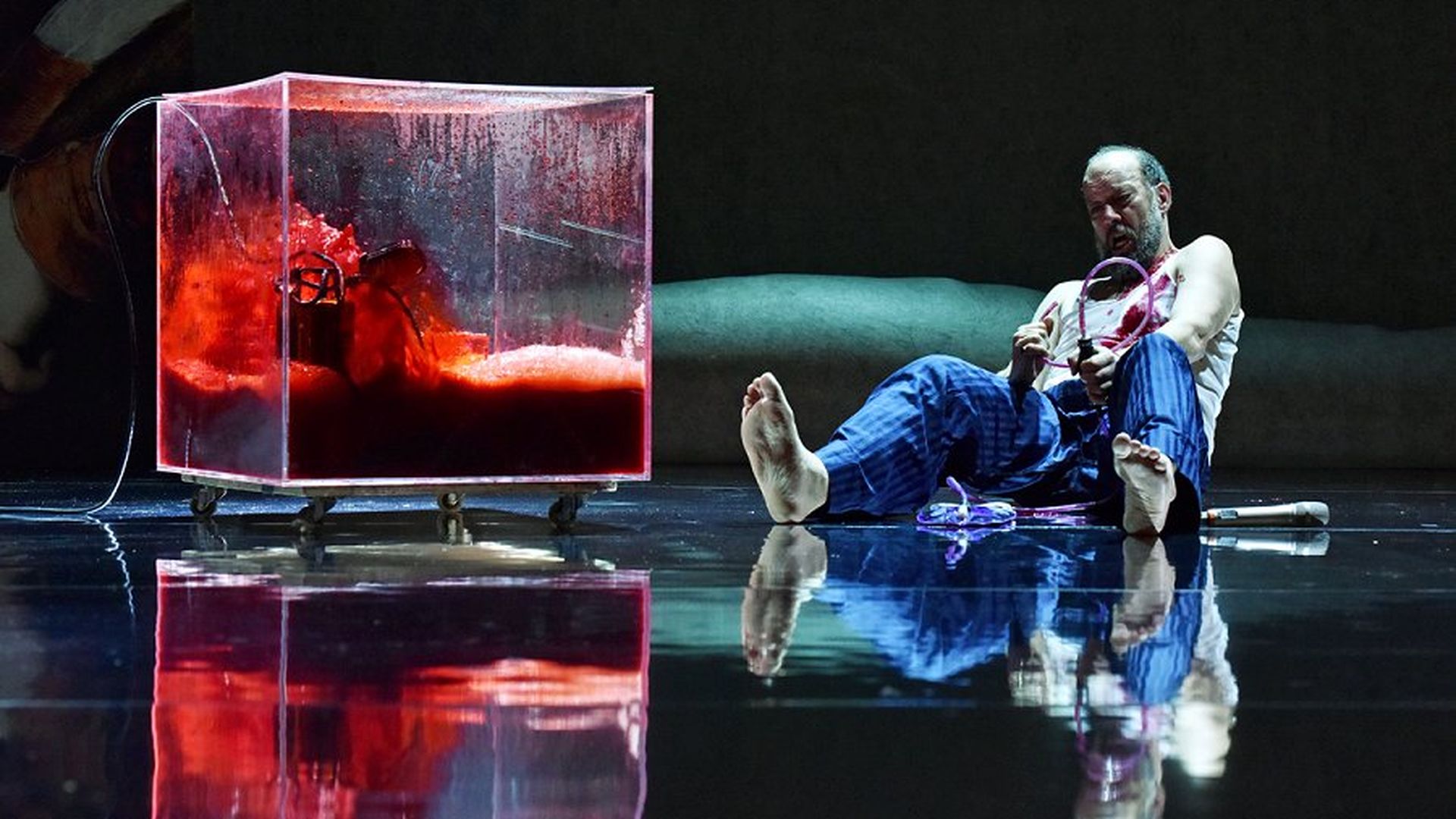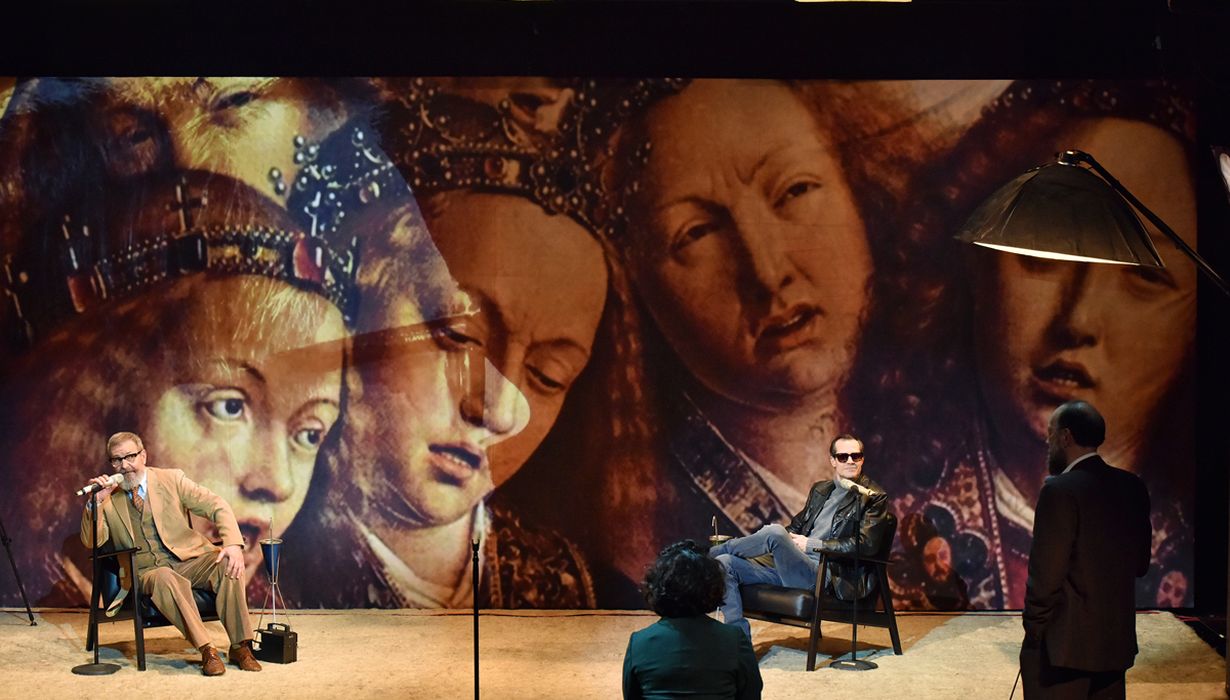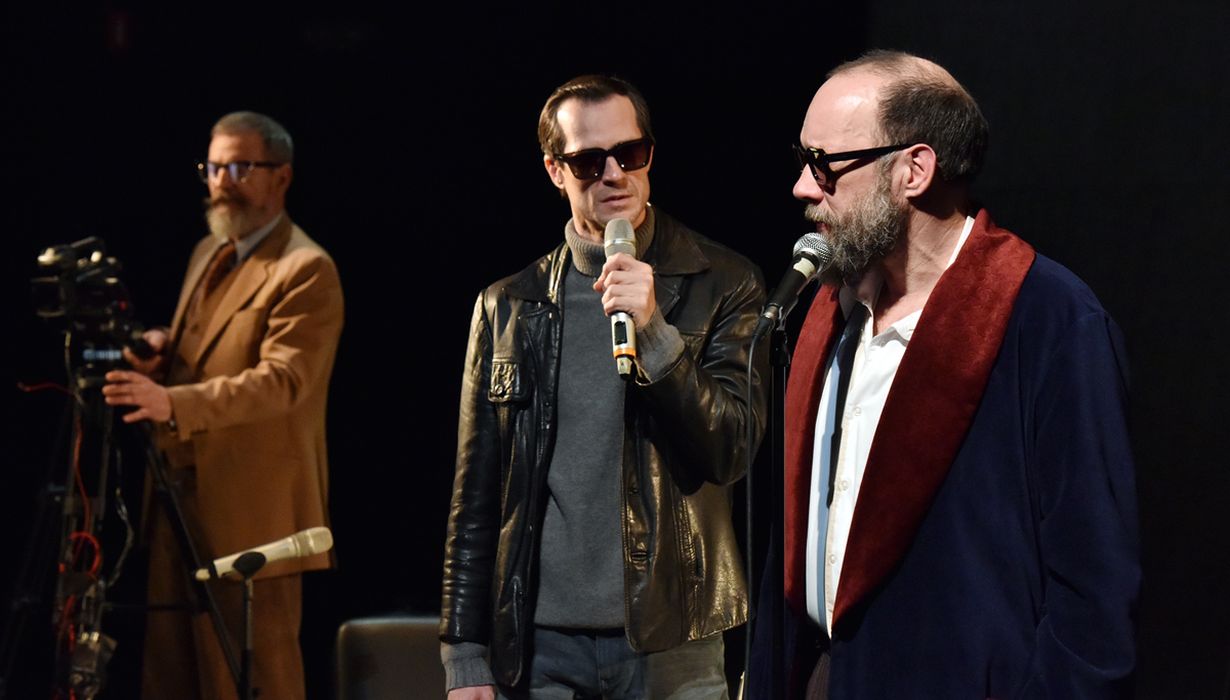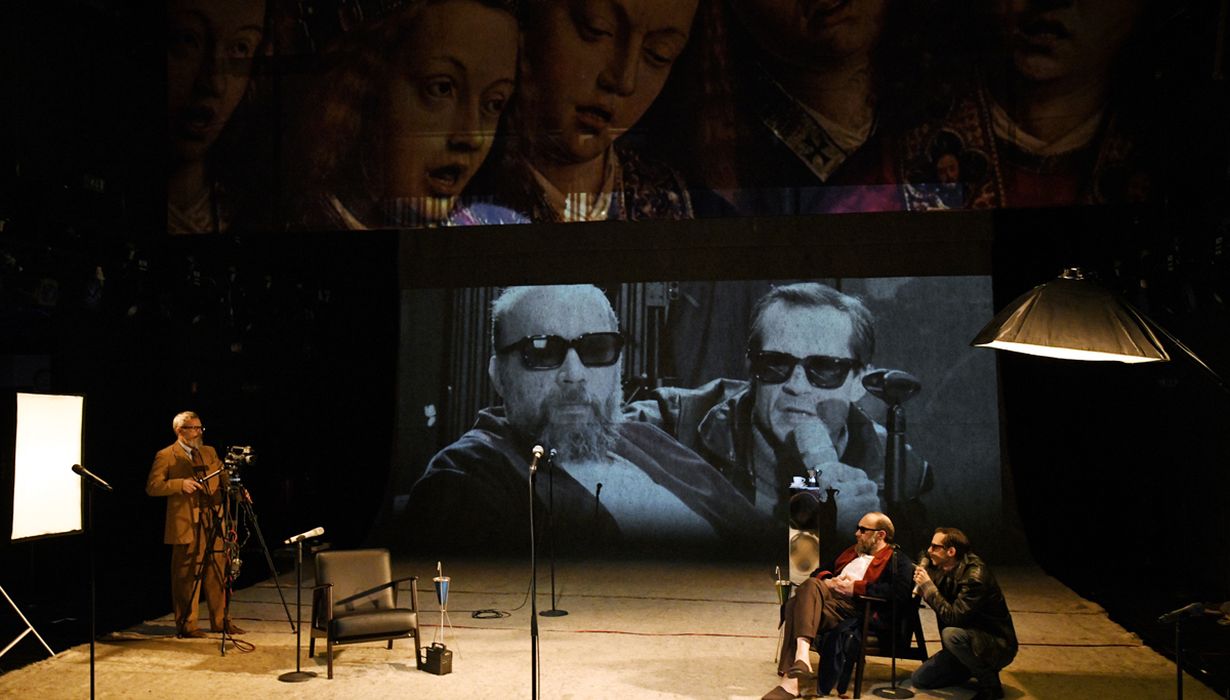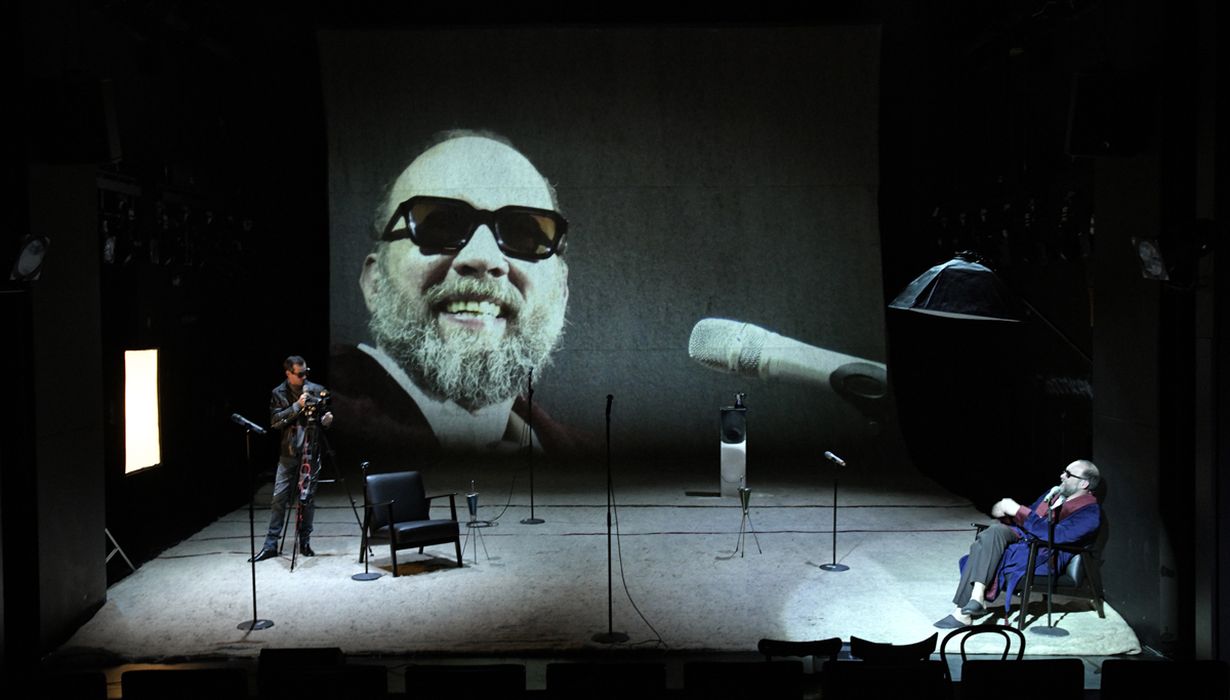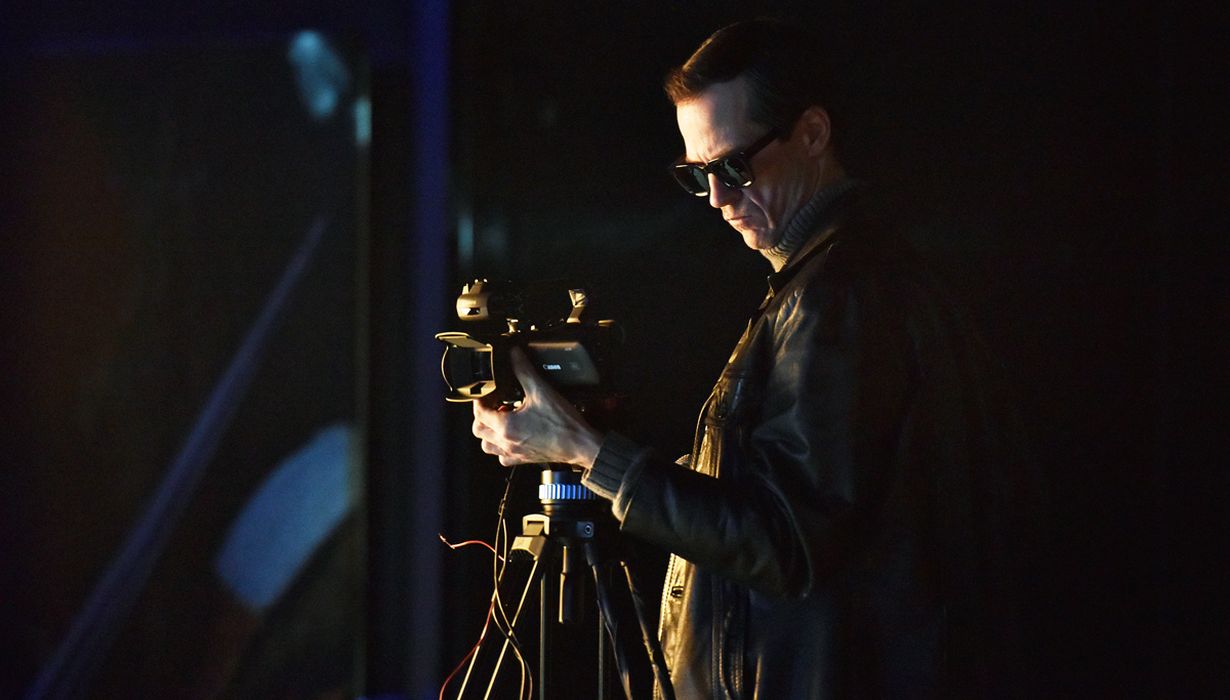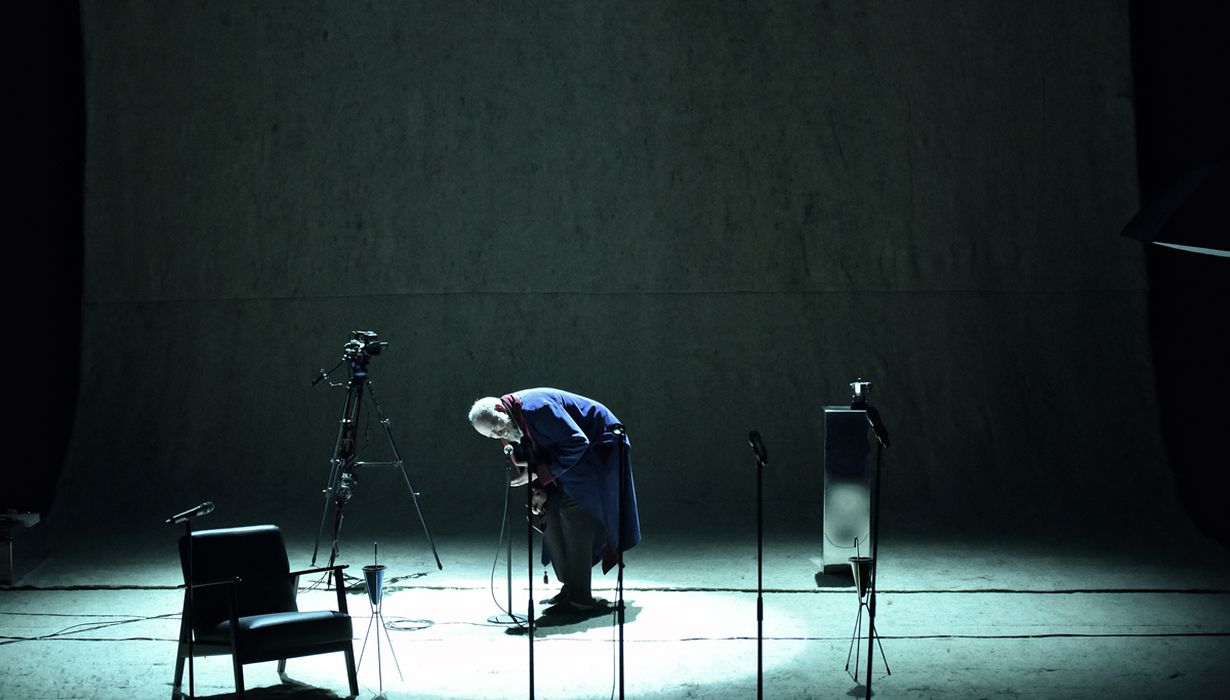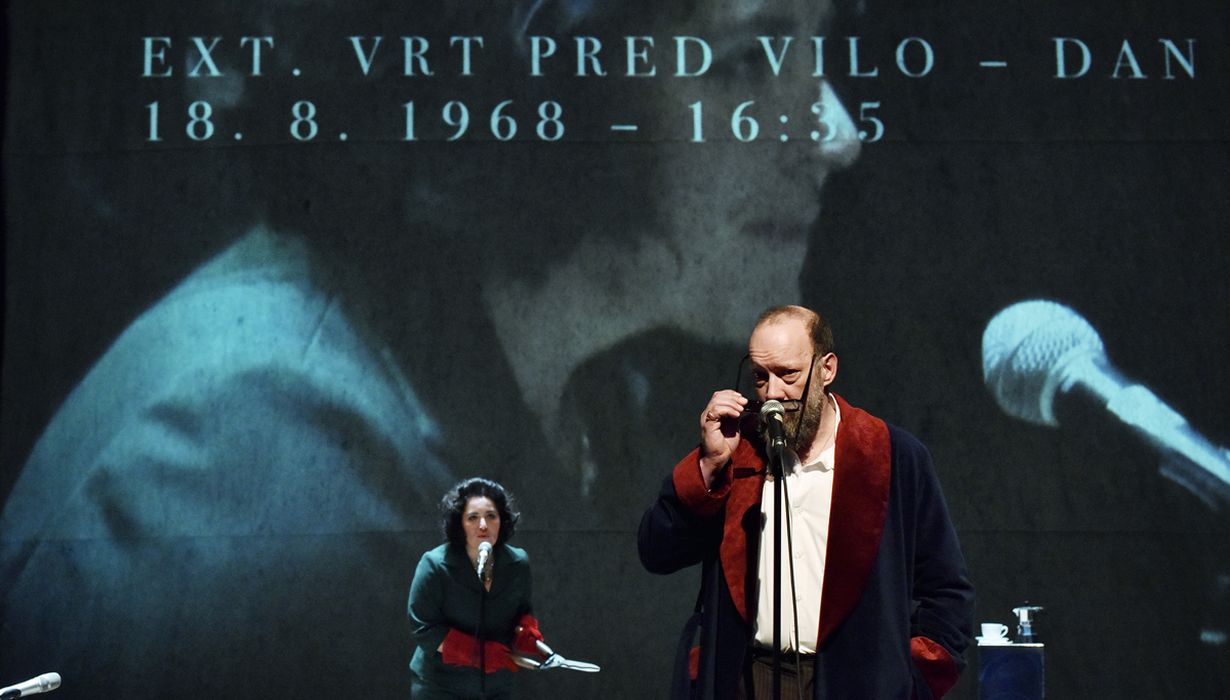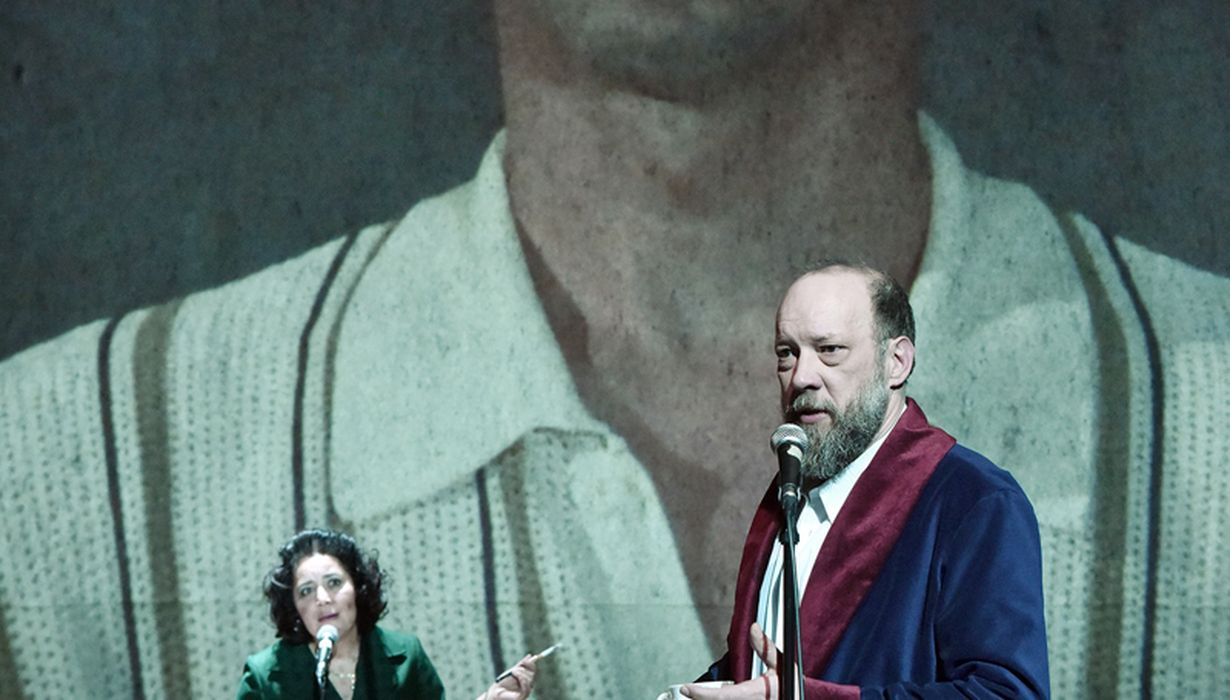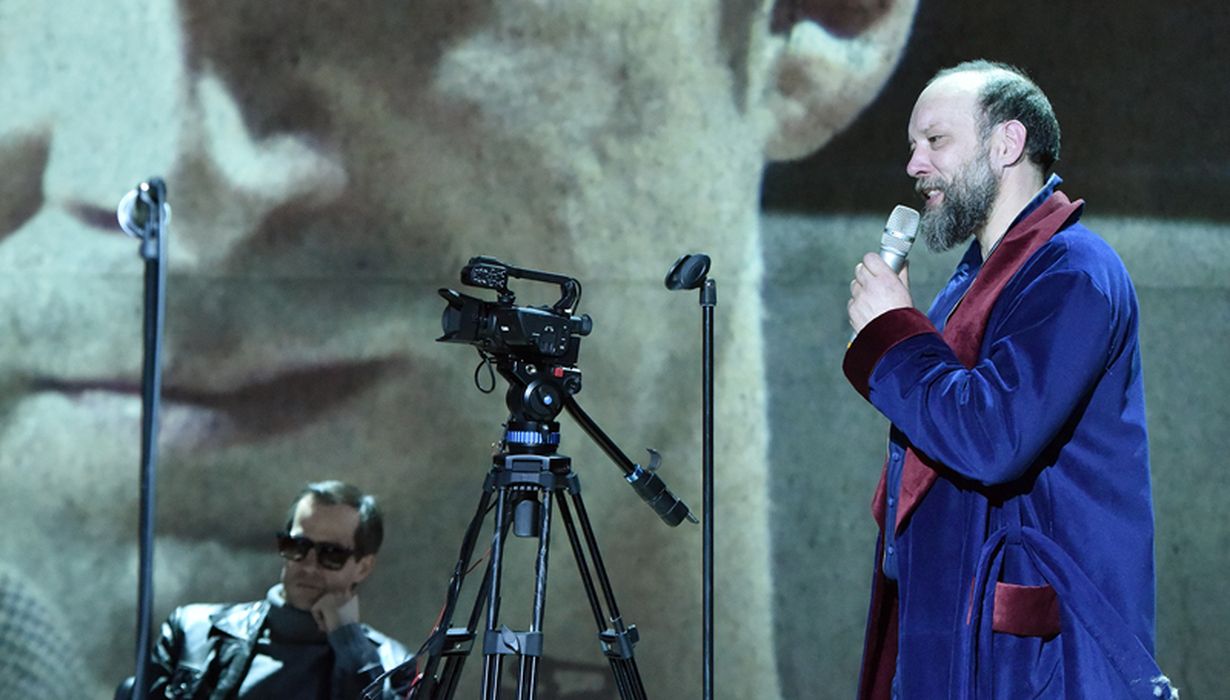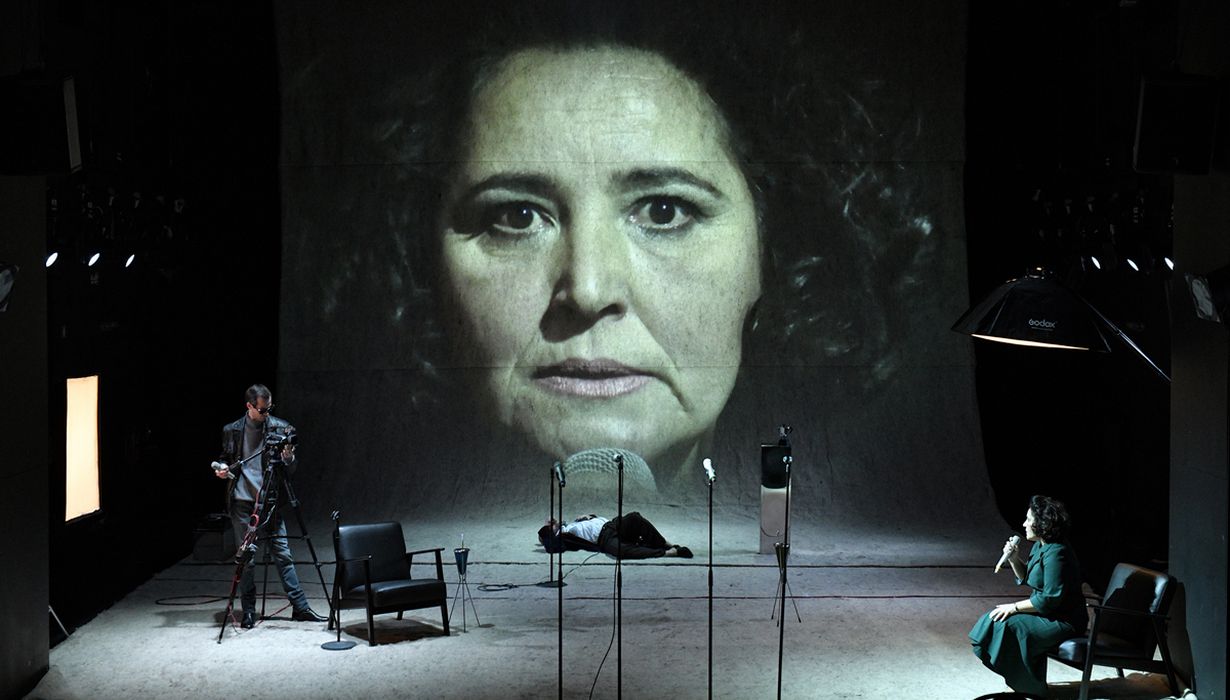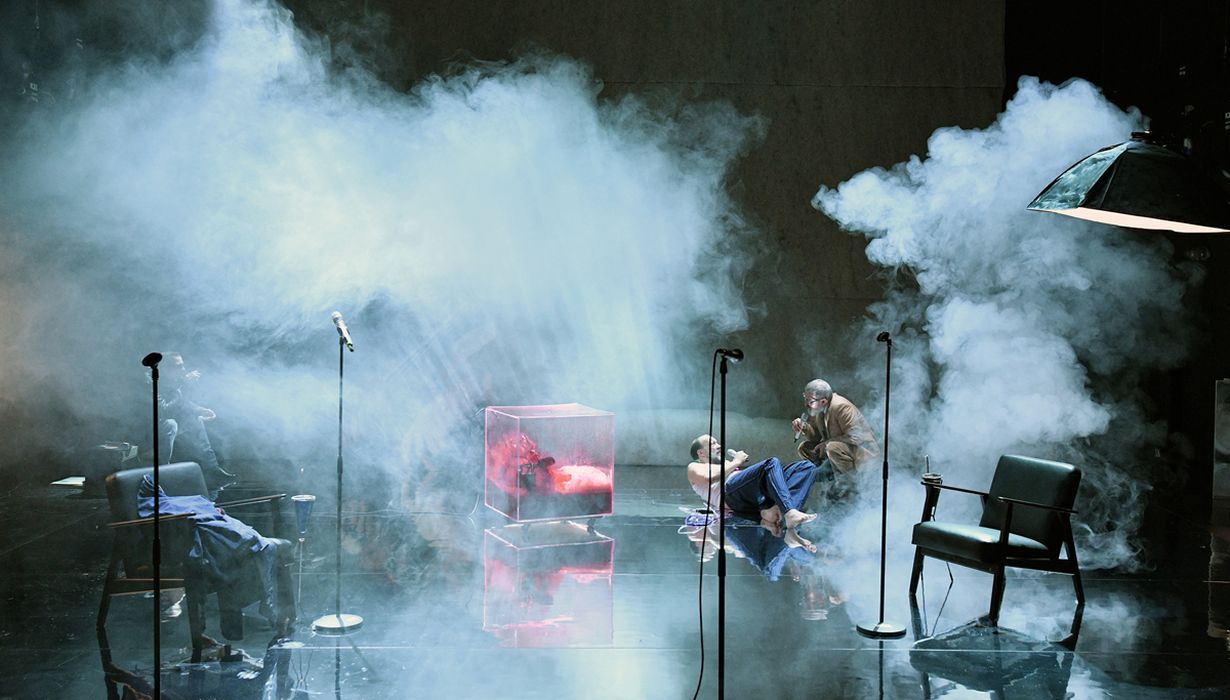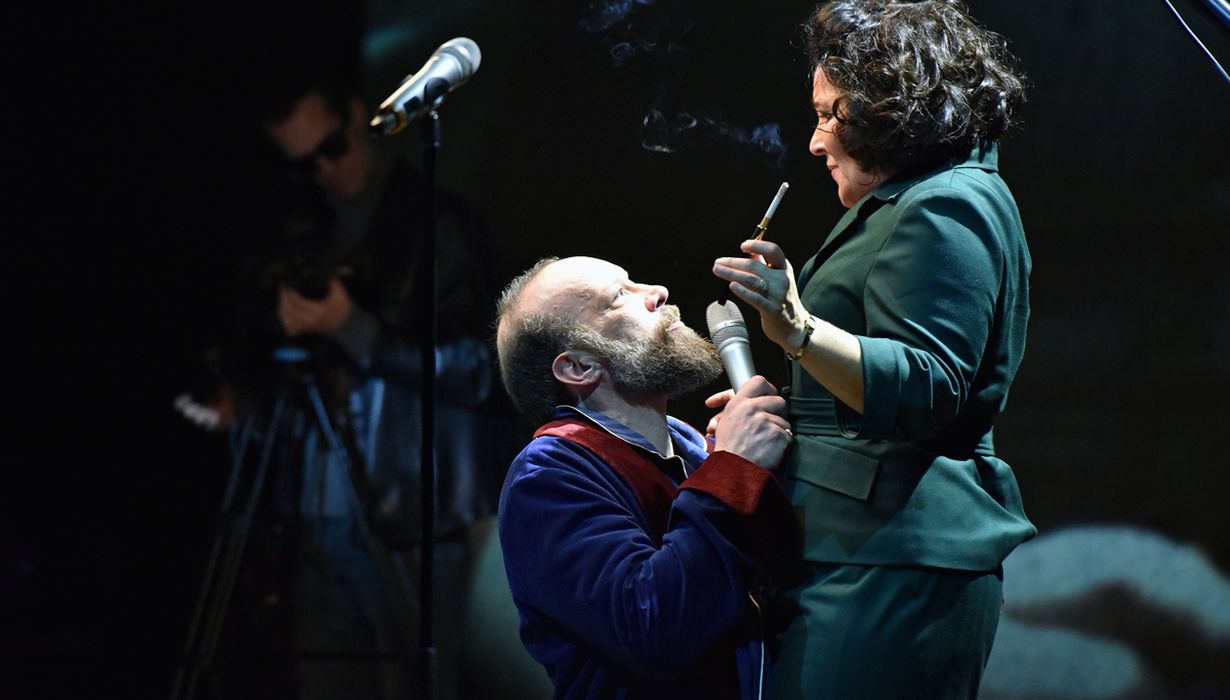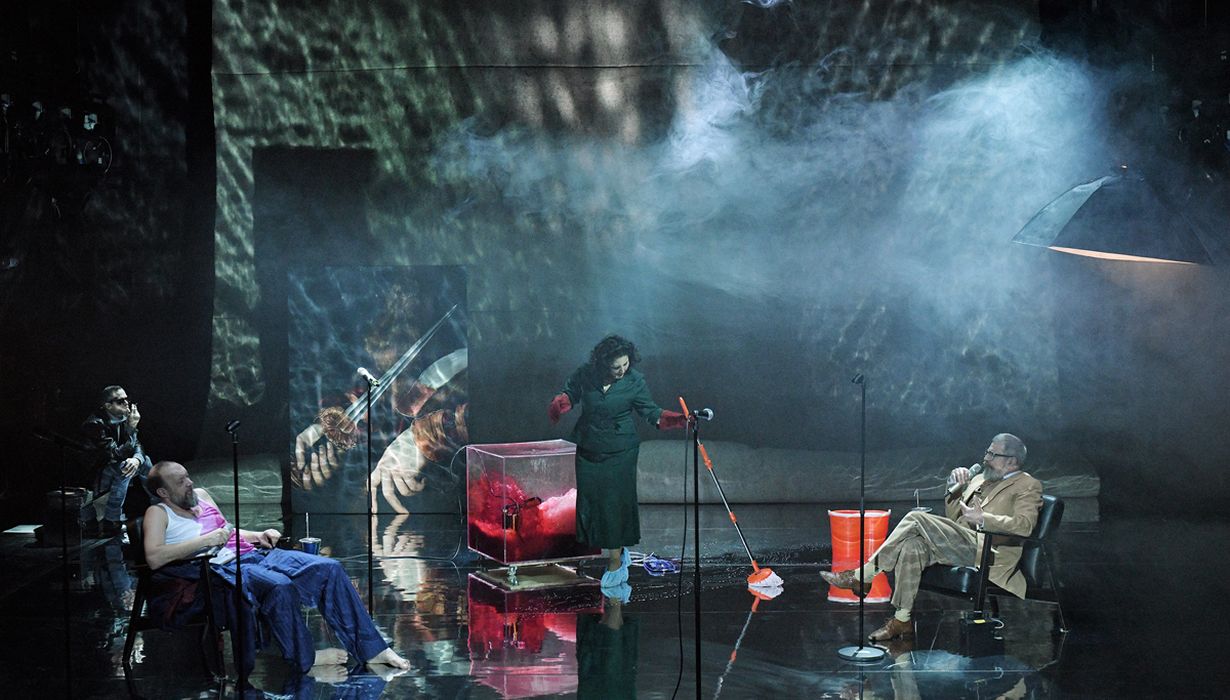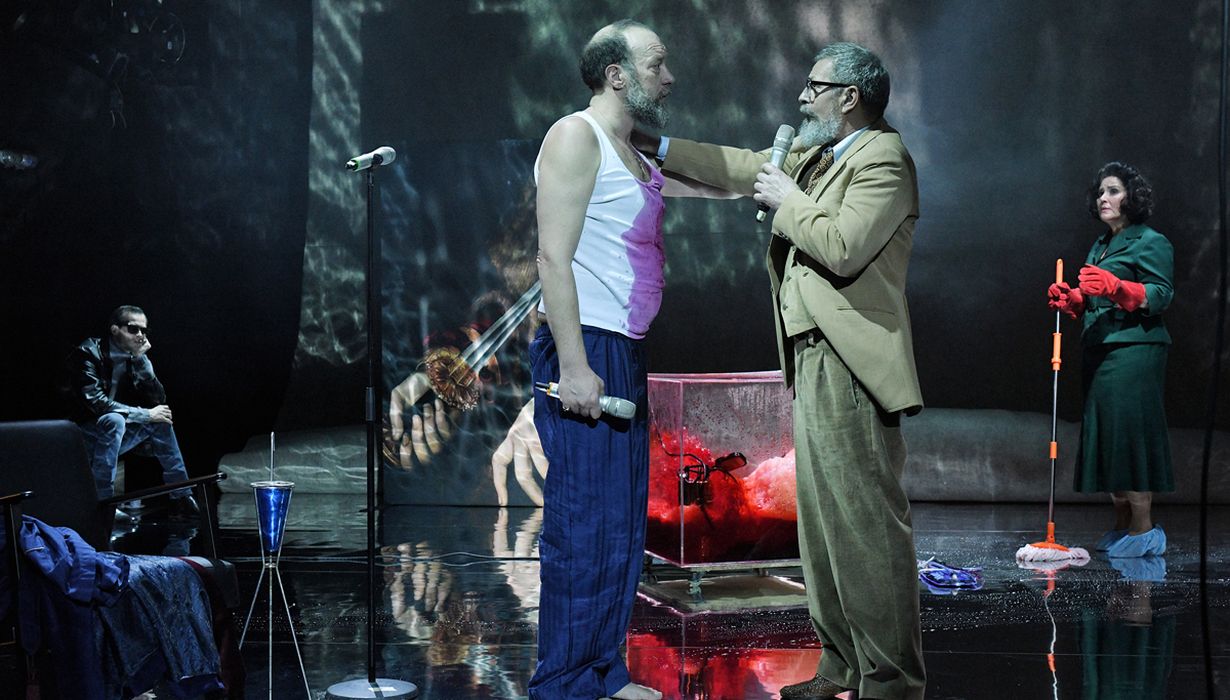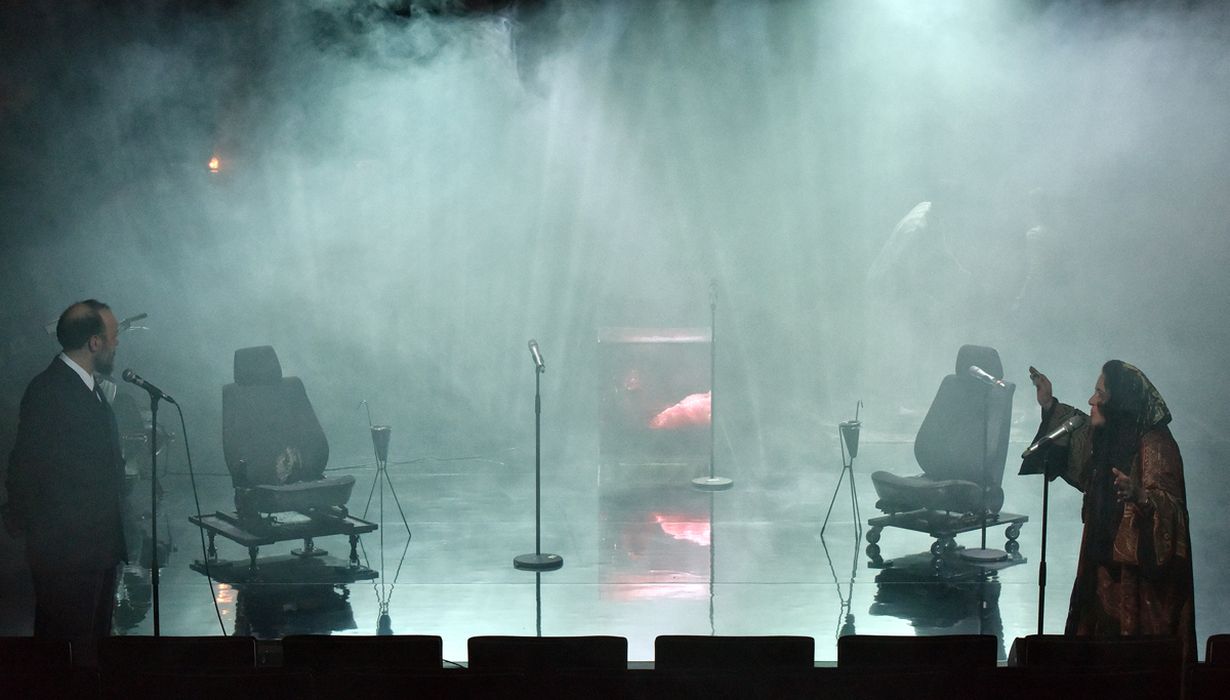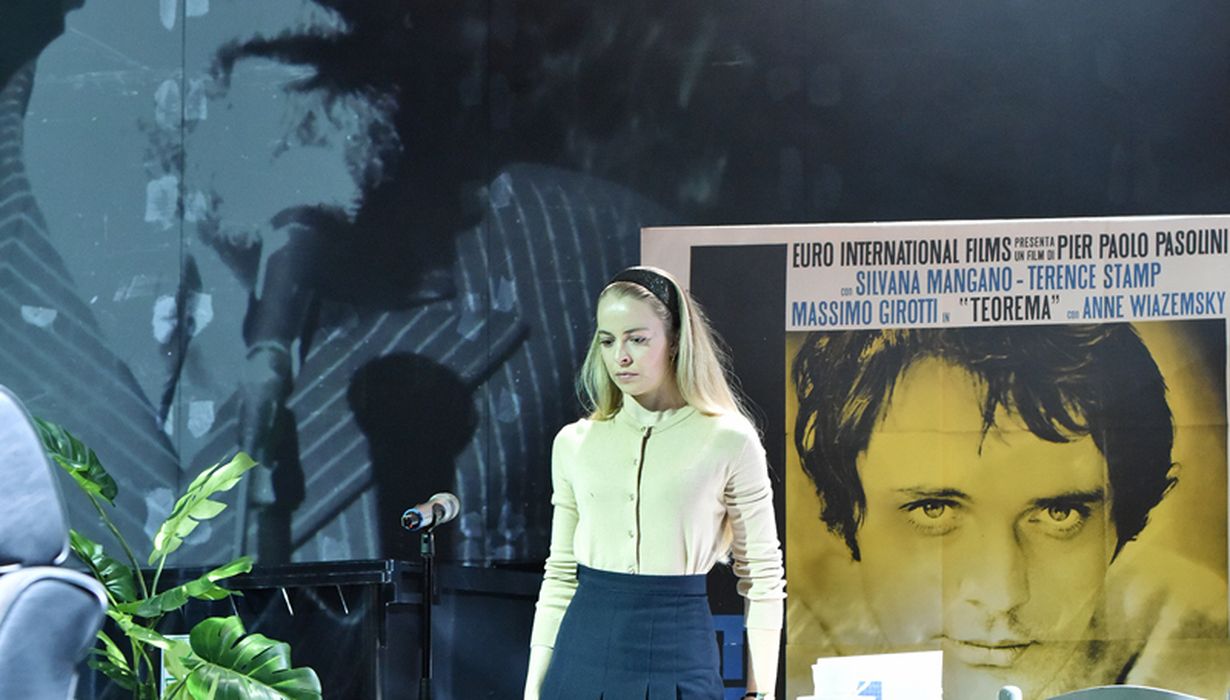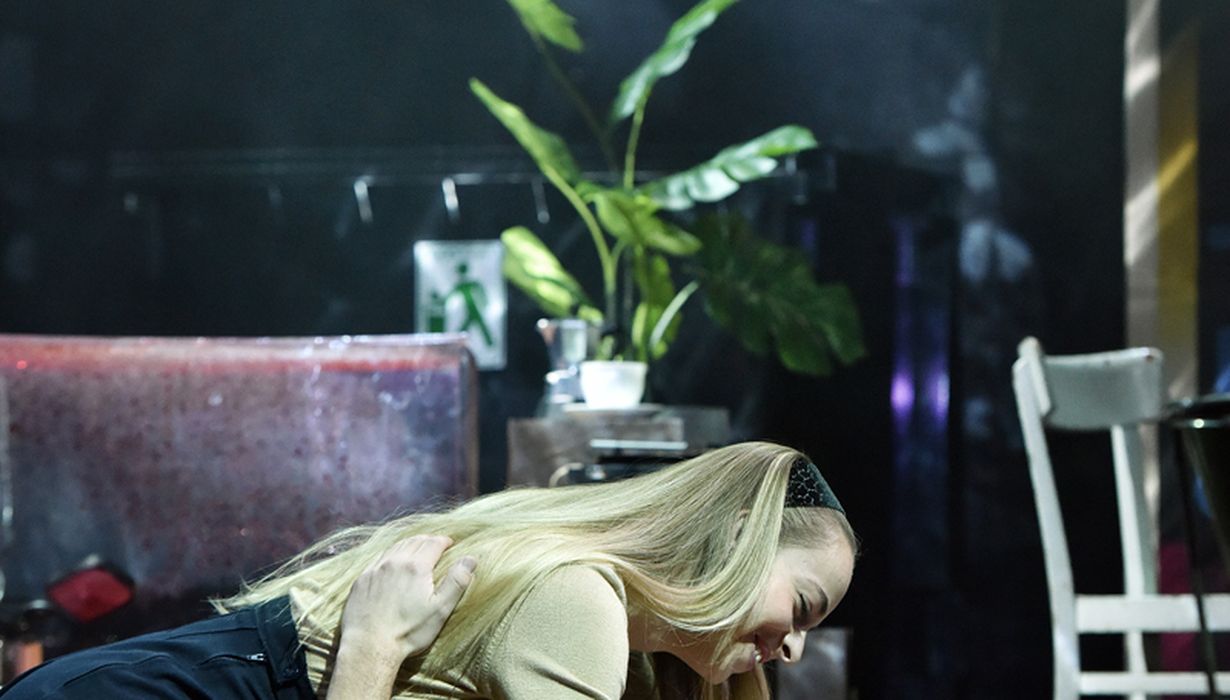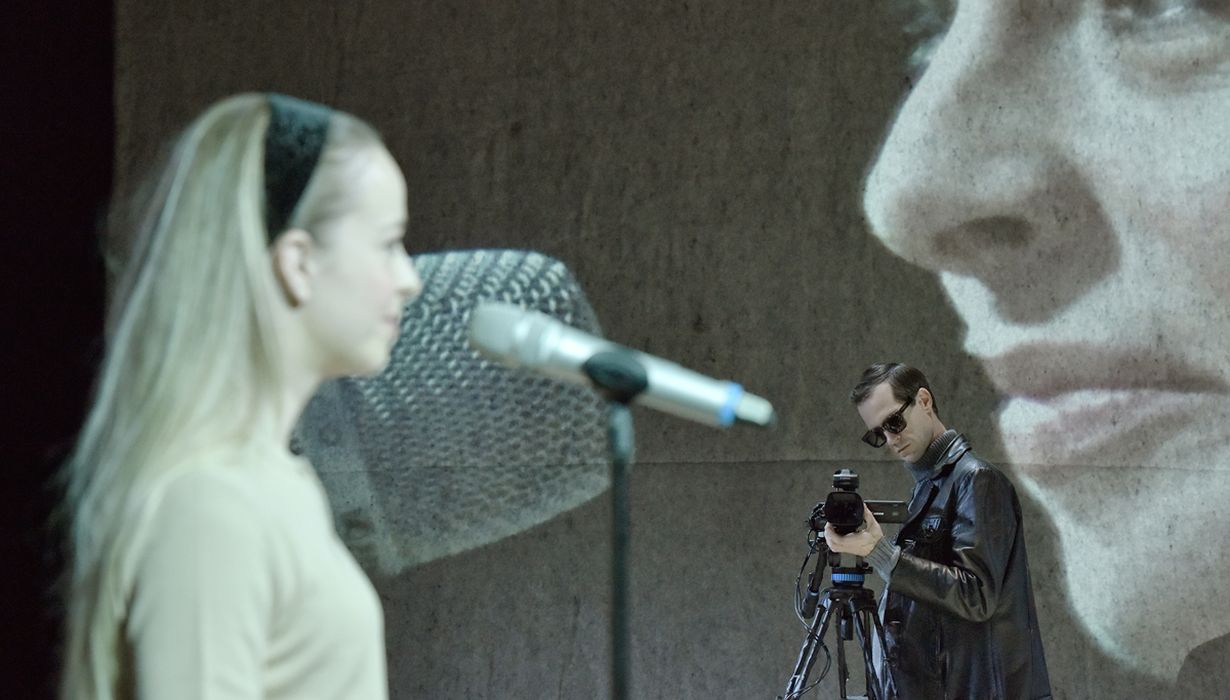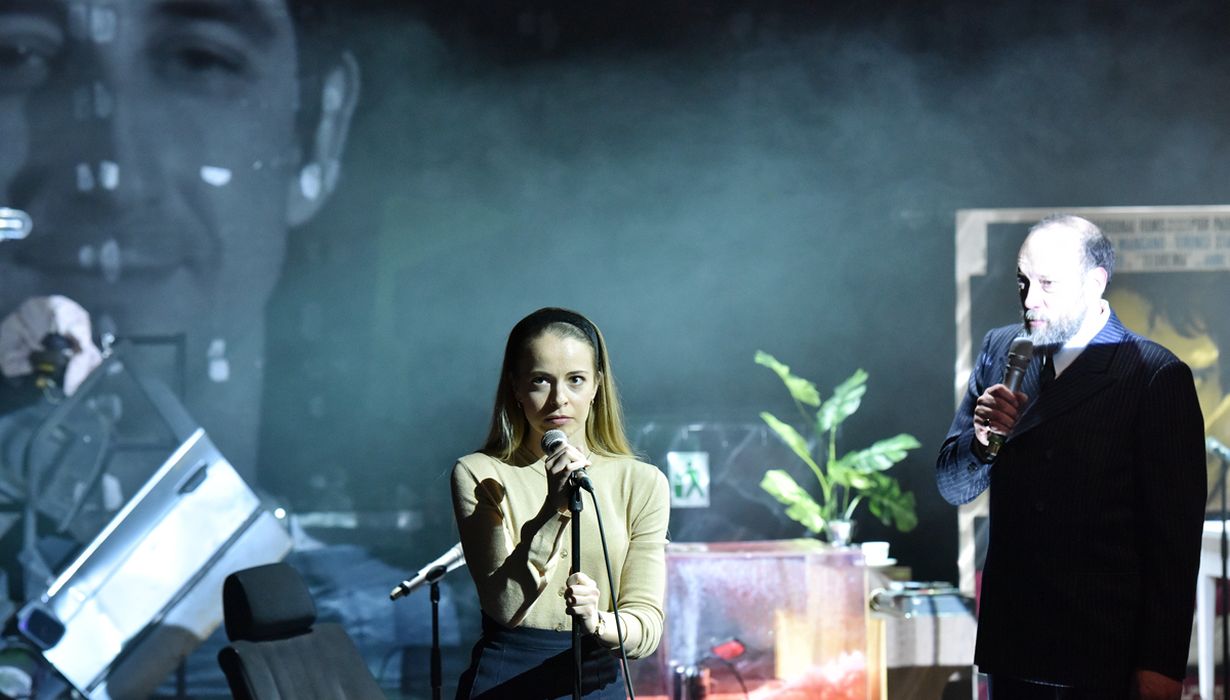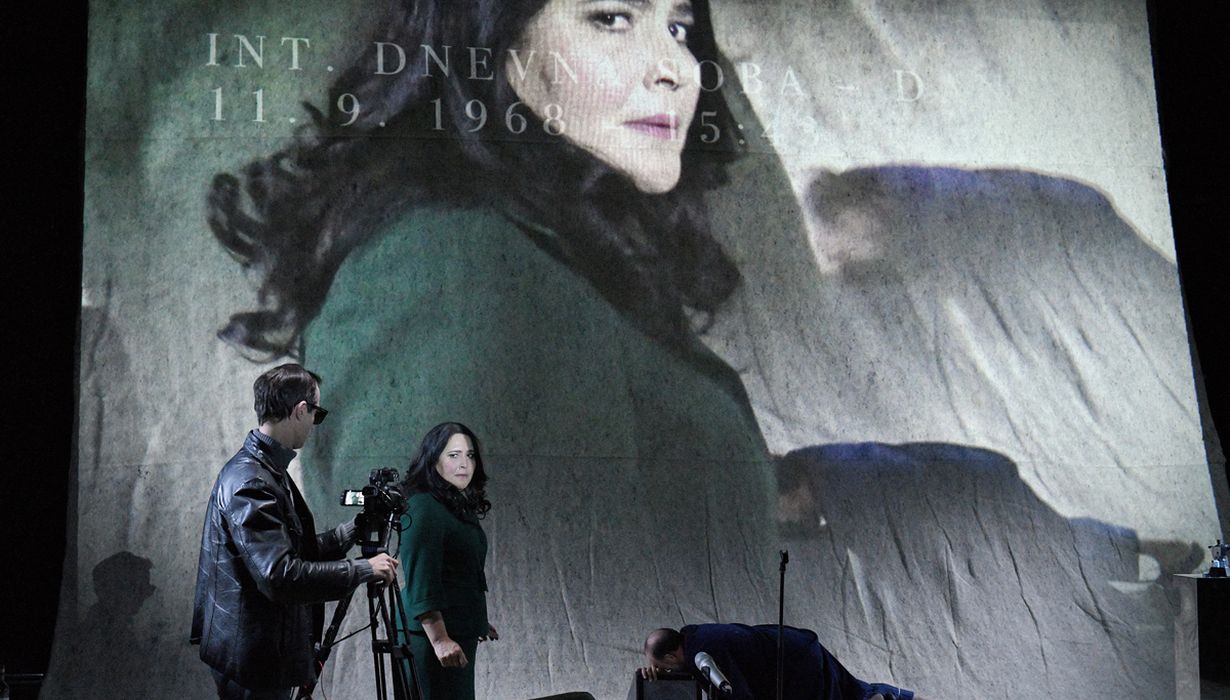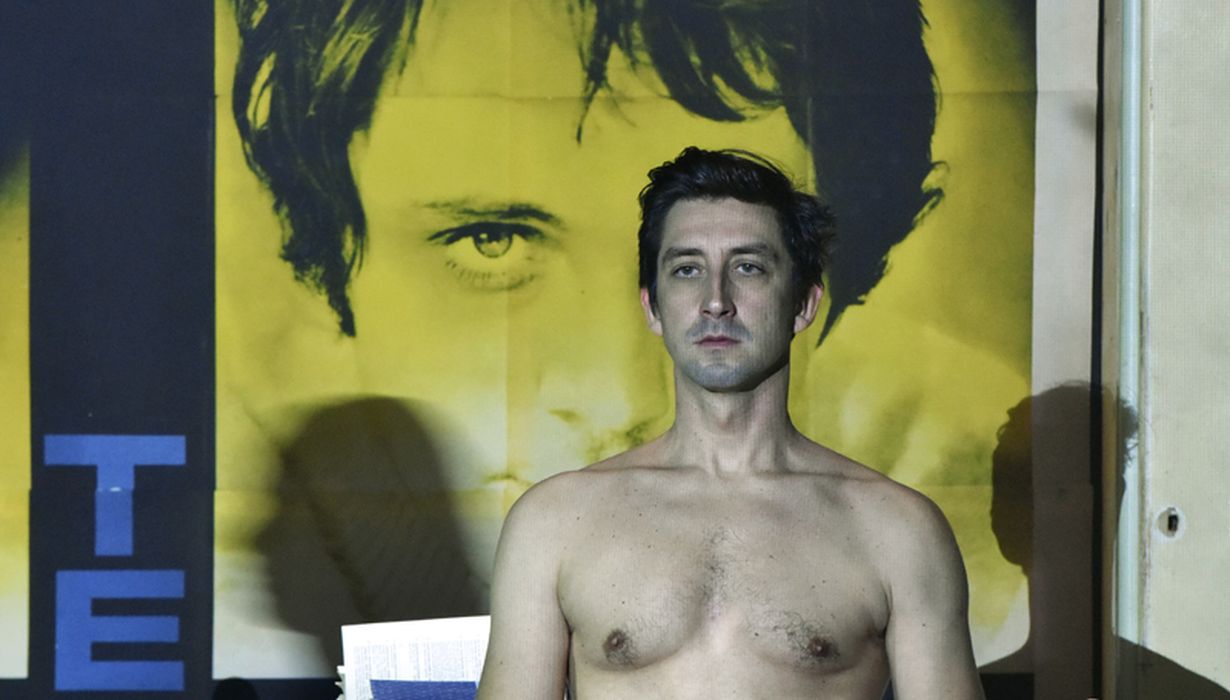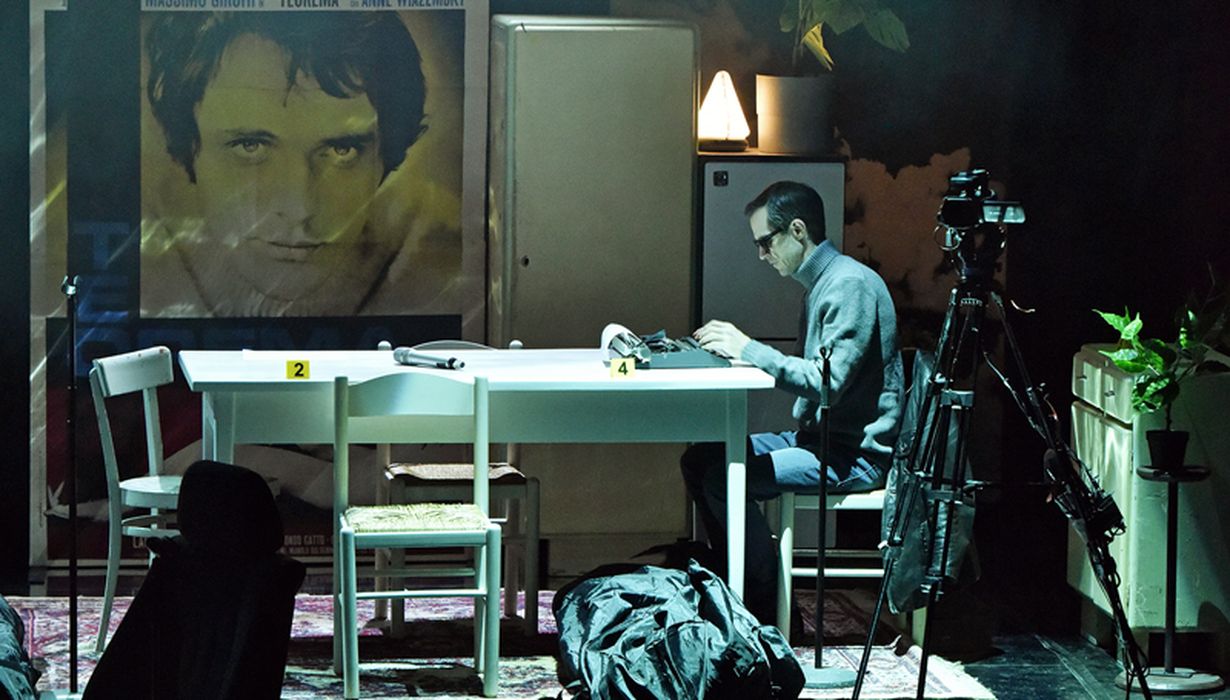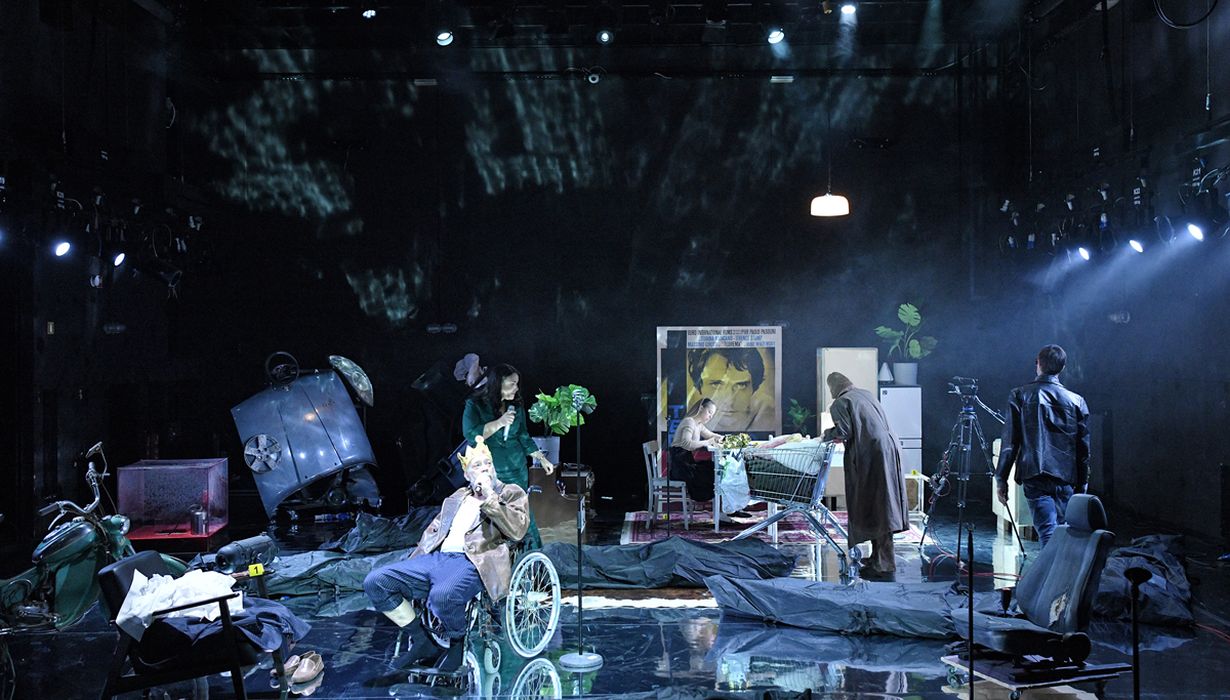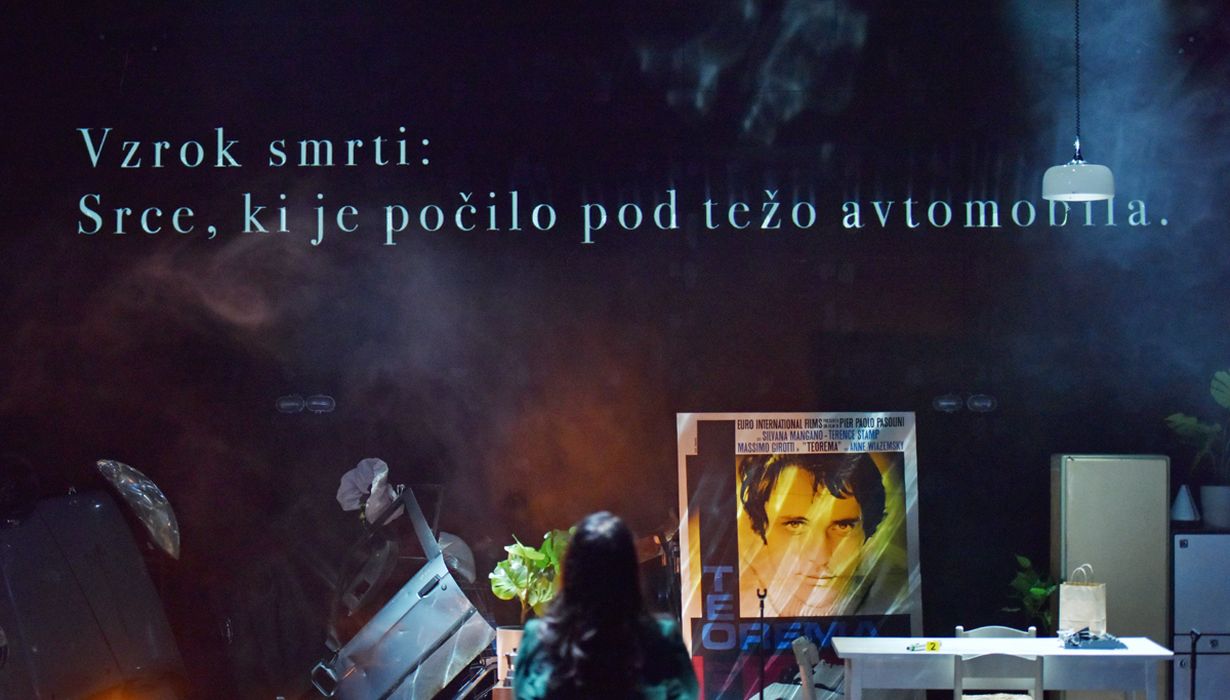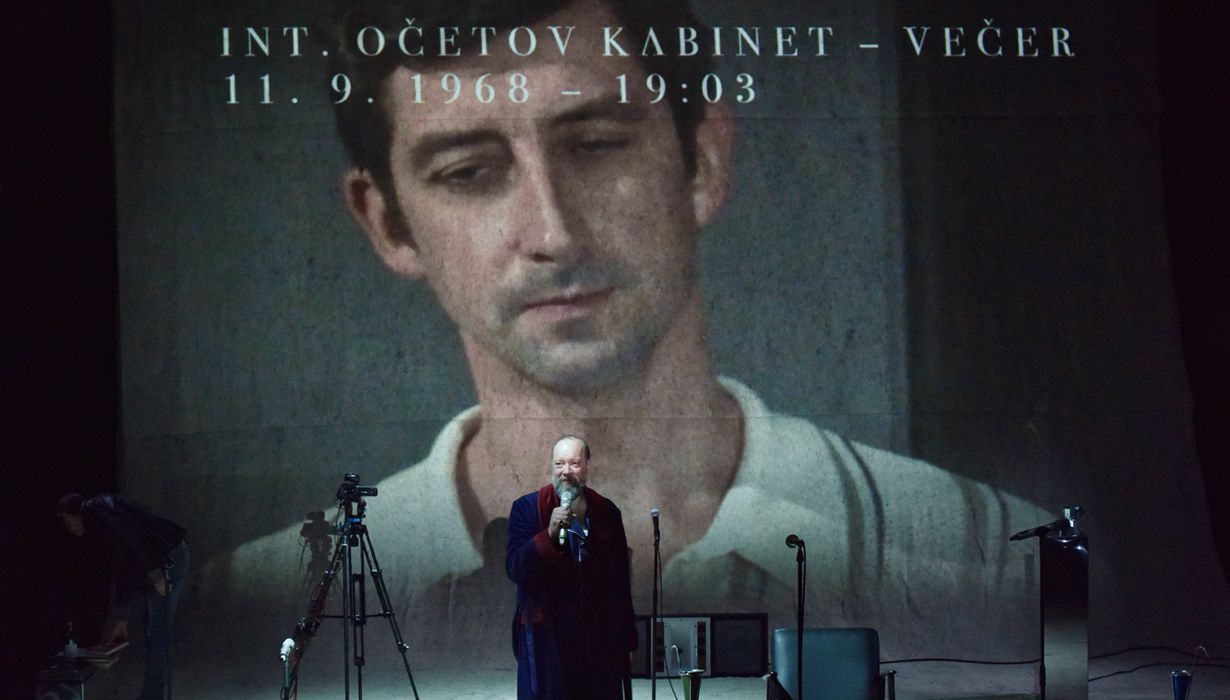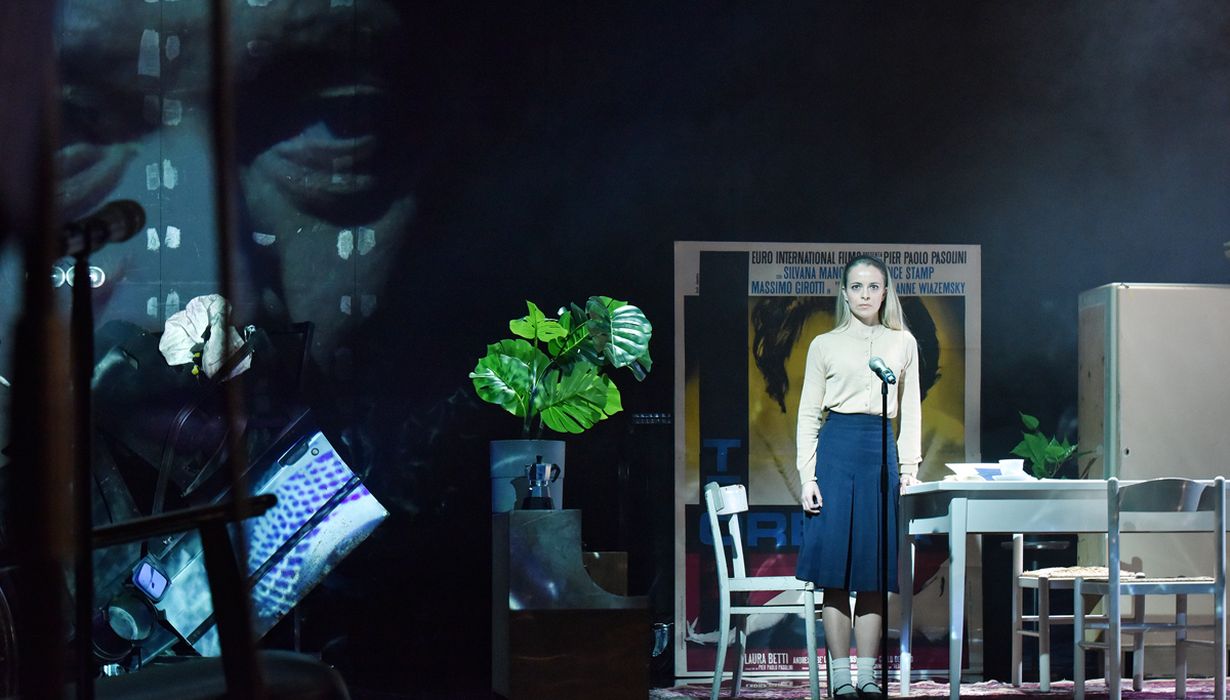Affabulazione
Affabulazione, 1966–1970
First Slovene production
PREMIERE
24. januar 2024
SNG Nova Gorica
25. januar 2024
SNG Nova Gorica, small stage
This is a modern tragedy, but in it, the present is already something past. A simple dream interrupts the peaceful and successful life of a Milanese industrialist who is vacationing with his family. His attempt to understand the meaning of an unusual dream leads to an even more destructive obsession with control over his son. When the father asks the son to kill him (some kind of Oedipus in reverse), the son runs away – and finally, the father kills the son. History ends, and passing the world like a torch between generations stops. In the epilogue, twenty years after the murder, the father lives at a train station as a beggar and, reminding us of an original histrion, shares his story with his imaginary listener. But this is not a story of one father, this is a story of the inevitable violence of a human being who wants to have, know and understand everything, at any price – and who cannot accept that other models of meaning exist. The son rejects murders, old and new (he doesn’t even take over his father’s company and continue his story), which shakes the father’s certainty and triggers his desire to destroy. Like capitalism, patriarchal society also can’t accept change, but instead demands destruction. Of everything, just so it can survive: it doesn’t allow an alternative. Pasolini puts human life into words as inevitably mythological.
Thousands of sons are murdered by the fathers: and every now and then a son kills his father – this is well known. But how does it occur that fathers murder sons? Through jails and trenches, and conc
entration camps, through bombed cities.
Pier Paolo Pasolini
The production is an interesting homage to Pasolini’s opus. Through the thematization of the generational struggle, the production also thematizes the wider context of Pasolini’s contemplations on the class struggle, violence, and the power of art in the time of capital. Pasolini was an early critic of the consumerist society and the values of capital which only favours consuming. In his texts, the bourgeois protagonists often experience a sacral transformation and thus take the place of the tragic classical hero, the sacred returns from oblivion and shakes the modern subject. In this modern-era tragedy, the author wishes to use his thinking through human paradoxicality to invite the spectators to consider, perhaps even recognise the origins of aggression or powerlessness that prevent us from seeing the Other as a mystery on the stage of life, but instead as a riddle that needs to be solved. This is why we’re interested in the mystery of such phenomena of life that push us to time and again use reason to search for solutions to riddles with which “the cursed space between the human and his government and reality is strewn”. In his manifesto of verbal theatre, Pasolini writes that both the question and the answer live in the spectators. The one watching has to power to decipher reality.
Creators
-
Translator
Gašper Malej -
Director
Jan Krmelj -
Dramaturg
Živa Bizovičar -
Language Consultant
Anja Pišot -
Set and Video Designer
Dorian Šilec Petek -
Costume Designer
Brina Vidic -
Composers
Jan Krmelj, Luka Ipavec
Performing
Father
Miha NemecMother
Marjuta SlamičGhost of Sophocles
Željko Hrs k. g.Son
Žiga UdirGirl
Lara FortunaPier Paolo Pasolini
Peter Harl
THEATER LIST
Awards
- Nagrada tantadruj za učinkovito prevpraševanje odnosa med gledališkim in filmskim medijem, 2024
24. 1. 2024, 20.00. SNG Nova Gorica.
25. 1. 2024, 20.00. SNG Nova Gorica.
26. 1. 2024, 20.00. SNG Nova Gorica.
1. 2. 2024, 19.00. SNG Nova Gorica.
2. 2. 2024, 19.00. SNG Nova Gorica.
3. 2. 2024, 19.00. SNG Nova Gorica.
28. 2. 2024, 19.00. SNG Nova Gorica.
SPONSORS





